Has Texas lost its pro-business mojo?
The state has dropped out of the top five in a ranking of the best states for business. Is it politics?

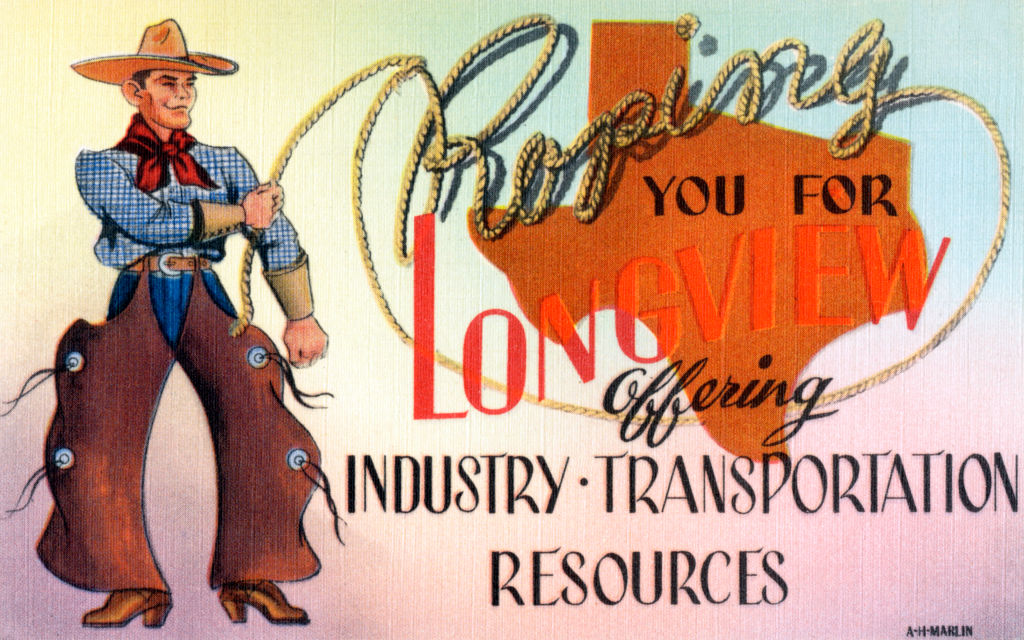
A free daily email with the biggest news stories of the day – and the best features from TheWeek.com
You are now subscribed
Your newsletter sign-up was successful
"Politicians in Texas love to talk about how business-friendly the state is," Michael Marks wrote at Texas Standard. "And for years, the data has backed that up." Ever since CNBC started ranking America's top states for business, Texas has been in the top five, placing first or second every year from 2008 to 2019.
But like a bowl of queso or a float down a lazy river on a hot day, all good things come to an end. When CNBC released its 2023 rankings, Texas came in at No. 6, behind North Carolina, Virginia, Tennessee, Georgia and Minnesota.
The new business-friendly rankings were greeted with cheers up in St. Paul. Down in Austin, Texas Gov. Greg Abbott (R) suggested there had been some kind of mistake. "Texas remains No. 1 because people and businesses are choosing our state over any other for the unmatched competitive advantages we offer: no corporate or personal income taxes, a predictable regulatory climate, and a young, skilled, diverse and growing workforce," an Abbott spokesman told CNBC.
The Week
Escape your echo chamber. Get the facts behind the news, plus analysis from multiple perspectives.

Sign up for The Week's Free Newsletters
From our morning news briefing to a weekly Good News Newsletter, get the best of The Week delivered directly to your inbox.
From our morning news briefing to a weekly Good News Newsletter, get the best of The Week delivered directly to your inbox.
CNBC said the numbers don't lie. Its rankings are "not an opinion survey" but rather a data-driven study of 86 metrics in 10 broad categories of competitiveness. Furthermore, "each category is weighted based on how frequently states use them as a selling point in economic development marketing materials," CNBC said. "That way, our study ranks the states based on the attributes they use to sell themselves." What's happening to the Lone Star State's vaunted pro-business mojo?
Why did Texas drop out of the top five?
Texas has been losing ground every year since CNBC last ranked it No. 1 in 2018, The Dallas Morning News noted. "It placed second in 2019, fourth in 2021 and fifth last year." (The rankings were suspended in 2020 due to the Covid-19 pandemic.)
What finally pushed Texas out of the top tier, Erica Greider wrote at the Houston Chronicle, were "concerns about its power grid, its aging water utilities, skimpy per-pupil school spending, rising housing costs and controversial social policies, including one of the strictest abortion bans in the nation and what CNBC called an ongoing 'crackdown' on LGBTQ+ rights."
Infrastructure was the second-most important category in this year's methodology, and Texas fell to 24th place from 14th last year, Scott Cohn explained at CNBC. The massive power outage during 2021's big freeze "exposed serious weaknesses" in the Texas power grid, and "at a time when advanced manufacturing companies are prioritizing reliable power, Texans are enduring nearly 20 hours without electricity per year," third worst in the U.S.
A free daily email with the biggest news stories of the day – and the best features from TheWeek.com
In education, Texas dropped to No. 35 from No. 21, and it's now 22nd in cost of living, from 14th in 2022. The state earned a C in business friendliness.
But "Texas' biggest weakness in 2023 is also its most controversial," Cohn wrote. "The state finishes dead last in Life, Health and Inclusion, dropping from No. 49 last year." Texas got just 53 points out of 350 in that category, giving it an F grade, the Austin American-Statesman noted. That means Texas did earn top ranking in one category, even if it's "on a not-so-pleasant list: the top 10 worst places in America to live and work in 2023."
So Texas dropped to No. 6 because of social policy?
Yes, "CNBC built its explanation of Texas' ranking on the idea that the state's culture war stances, including on transgender issues, was hurting its business climate," Ryan J. Rusak argued in the Fort Worth Star-Telegram. "On the margins, that's probably true," but using a decline in lifestyle and inclusion to boot Texas from the top five "has all the trappings of red state/blue state politics, Lone Star envy, and propping up sagging midsummer ratings and online readership."
How can Texas be below Minnesota when it "leads the rankings in access to capital and is second among workforces and overall state economies"? Rusak added. Texas is the "undisputed champion of job creation and business relocation," but CNBC "needed a new storyline. Words like 'still,' 'again' or 'unchanged' don't make for great headlines."
CNBC did ding Texas for its "attacks on inclusiveness, reproductive rights and voters rights," but it "also noted the state's weak worker protections and poor access to health care, as well as its '13th-highest violent crime rate' in the nation" and efforts to limit cities' self-governance, the San Antonio Express-News said in an editorial. Texas has "landed in the bottom half of the quality-of-life rankings for a decade while maintaining its spot in the top five for business, but this year's rankings are a sign that Texas' politics are bogging down the state's economic engine."
"We're not here to fight Mickey Mouse," quipped North Carolina Gov. Roy Cooper (D), referring to restrictive social policies and anti-business culture war fights in Florida (No. 8) and Texas. "We're here to fight for jobs in North Carolina."
North Carolina and the other states in the top five have "adopted a lot of what Texas had been doing in the 2000s, 2010s" in terms of economic development and job creation, the Chronicle's Grieder told Texas Standard. When CNBC started its rankings in 2007, Texas was run by business-first Republicans, but since then "there's been a bit of shift in priorities," and "we're hearing a bit more about things like culture war issues," and "I would say business in Texas has less clout than it once did."
How does Texas stack up in other rankings?
Abbott noted in April that Texas has been ranked the best state for business by Chief Executive magazine for 19 straight years and has been awarded the Governor's Cup for 11 straight years by Site Selection, a magazine that covers corporate real estate and expansion. But Site Selection awards multiple Governor's Cups every year, and it's hardly the only credible source for business rankings, Politifact said. For example, "the Tax Foundation ranked Texas No. 13 in its most recent State Business Tax Climate Index and has consistently ranked Texas outside the top 10."
"There's no one measure that can capture everything about a state's business climate, but there's no denying that Texas is highly competitive, with low taxes, low regulatory burdens, and a strong economy that attracts many businesses and individuals," the Tax Foundation's Jared Walczak told Politifact. "Unsurprisingly, governors across the country tend to highlight the rankings on which their states do the best."
Texas is slipping in other surveys, too, the American-Statesmen said. The Austin area was named the "best place in the country to start a career" in one poll this year, but it has also dropped to "40th place on U.S. News & World Report's Best Places to Live in 2023-2024 list," from No. 1 in 2017 to 2019. That survey considered desirability, value, job market, quality of life and net migration, and while Austin continued to drop positions, it was still the highest-ranked city in Texas.
Can Texas learn something from CNBC's demotion?
"Informal rankings such as this one from CNBC are subjective, but they also raise concerns that shouldn't be ignored — is Texas still a place where entrepreneurialism can thrive?" the Express-News editorial board said. "What entities and people will the state lose as it continues to pursue an agenda of regressive policies?"
Dropping out of the top five is embarrassing for Texas politicians, but it could also be "a wake-up call to say, 'Hey, you know, why don't we focus as a state on what we have done well in the past'" and then "maybe head more back in that direction"? Grieder suggested at Texas Standard.
"Where CNBC gets it right, sort of, is the long-term effects of decades of relentless growth," Rusak wrote in the Star-Telegram. Texas needs more doctors, more housing, upgraded infrastructure, a reliable power grid and better schools. "In other words, CNBC could have written that Texas has been so strong for so long that its problems are actually symptoms of its wild success," he added. "But then, that's not much of a headline, is it?"
The CNBC rankings are useful as a "Rorschach test" for Texans, Chris Tomlinson wrote at the Chronicle. "Describe your politics, and I'll tell you what you think about the economy and the purpose of government." Abbott and other conservatives "celebrated the state's A+ grade for the economy," while liberals "found confirmation of their critique in the F given to Texas for life, health and inclusion."
But after 20 years of studying the low-tax, low-regulation "Texas miracle" of business-friendly success, "we know there is nothing miraculous about Texas' economy," Tomlinson added. It is and long has been "driven more by high oil prices and geography than its blustery politics." And that's not much of a headline either.
Peter has worked as a news and culture writer and editor at The Week since the site's launch in 2008. He covers politics, world affairs, religion and cultural currents. His journalism career began as a copy editor at a financial newswire and has included editorial positions at The New York Times Magazine, Facts on File, and Oregon State University.
-
 Political cartoons for February 19
Political cartoons for February 19Cartoons Thursday’s political cartoons include a suspicious package, a piece of the cake, and more
-
 The Gallivant: style and charm steps from Camber Sands
The Gallivant: style and charm steps from Camber SandsThe Week Recommends Nestled behind the dunes, this luxury hotel is a great place to hunker down and get cosy
-
 The President’s Cake: ‘sweet tragedy’ about a little girl on a baking mission in Iraq
The President’s Cake: ‘sweet tragedy’ about a little girl on a baking mission in IraqThe Week Recommends Charming debut from Hasan Hadi is filled with ‘vivid characters’
-
 Texas is trying to become America’s next financial hub
Texas is trying to become America’s next financial hubIn the Spotlight The Lone Star State could soon have three major stock exchanges
-
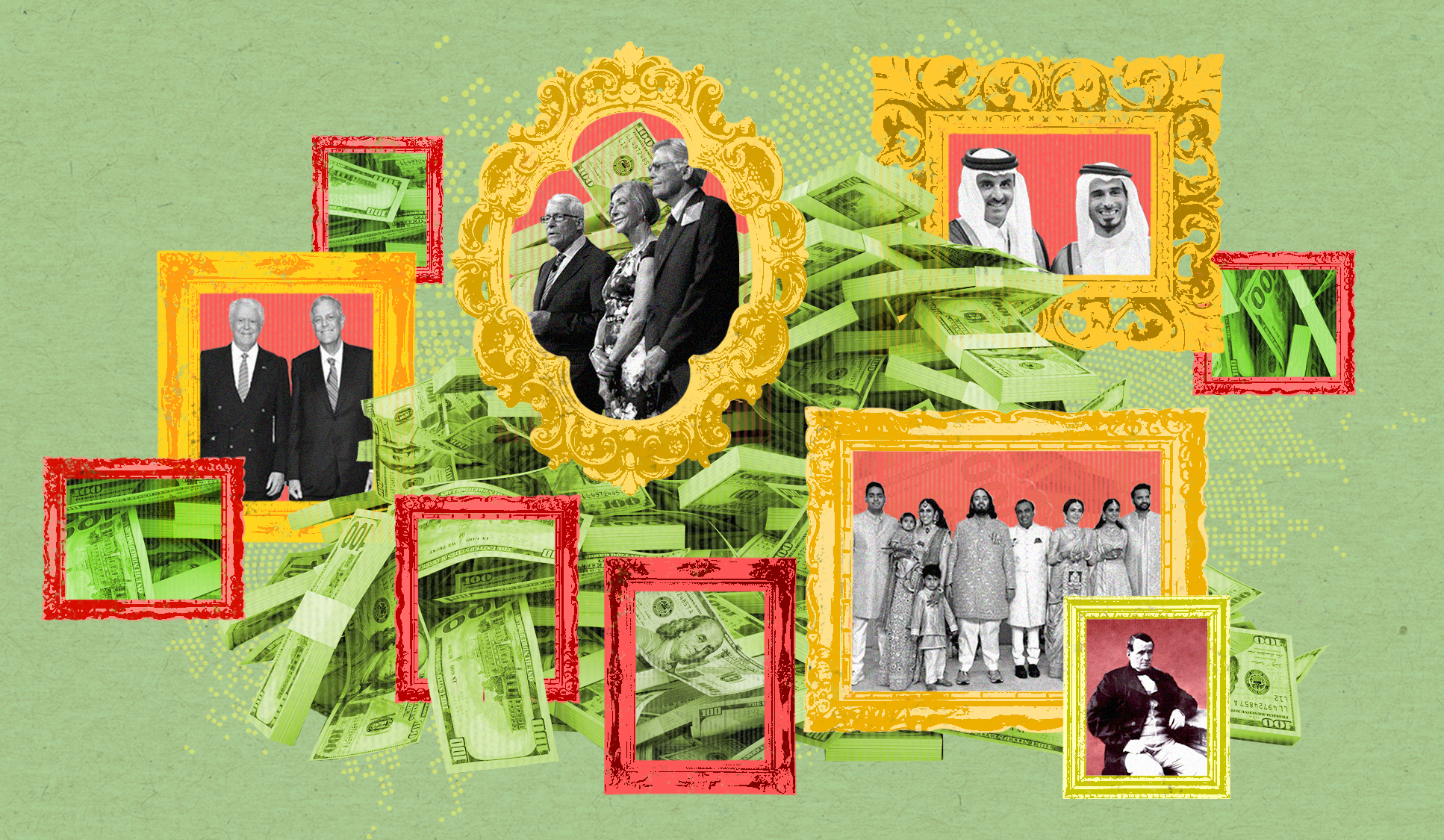 The world's 10 richest families
The world's 10 richest familiesIn Depth Luxury retailers, hereditary monarchs and the heirs to the Walmart fortune dominate the list of the world's wealthiest clans
-
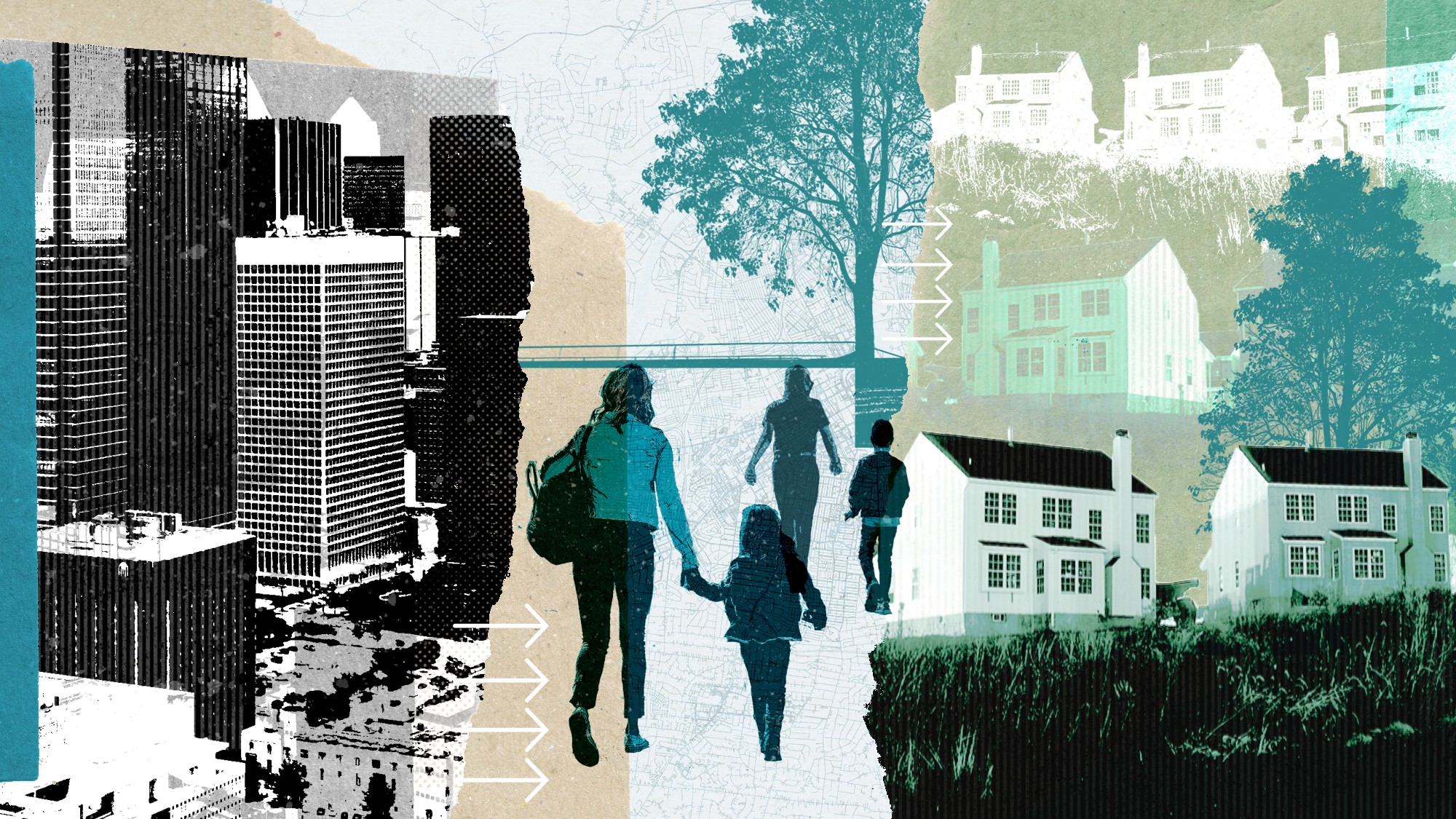 Exurbs: America's biggest housing trend you haven't heard of
Exurbs: America's biggest housing trend you haven't heard ofUnder the Radar Northeastern exurbs were the nation's biggest housing markets in 2024
-
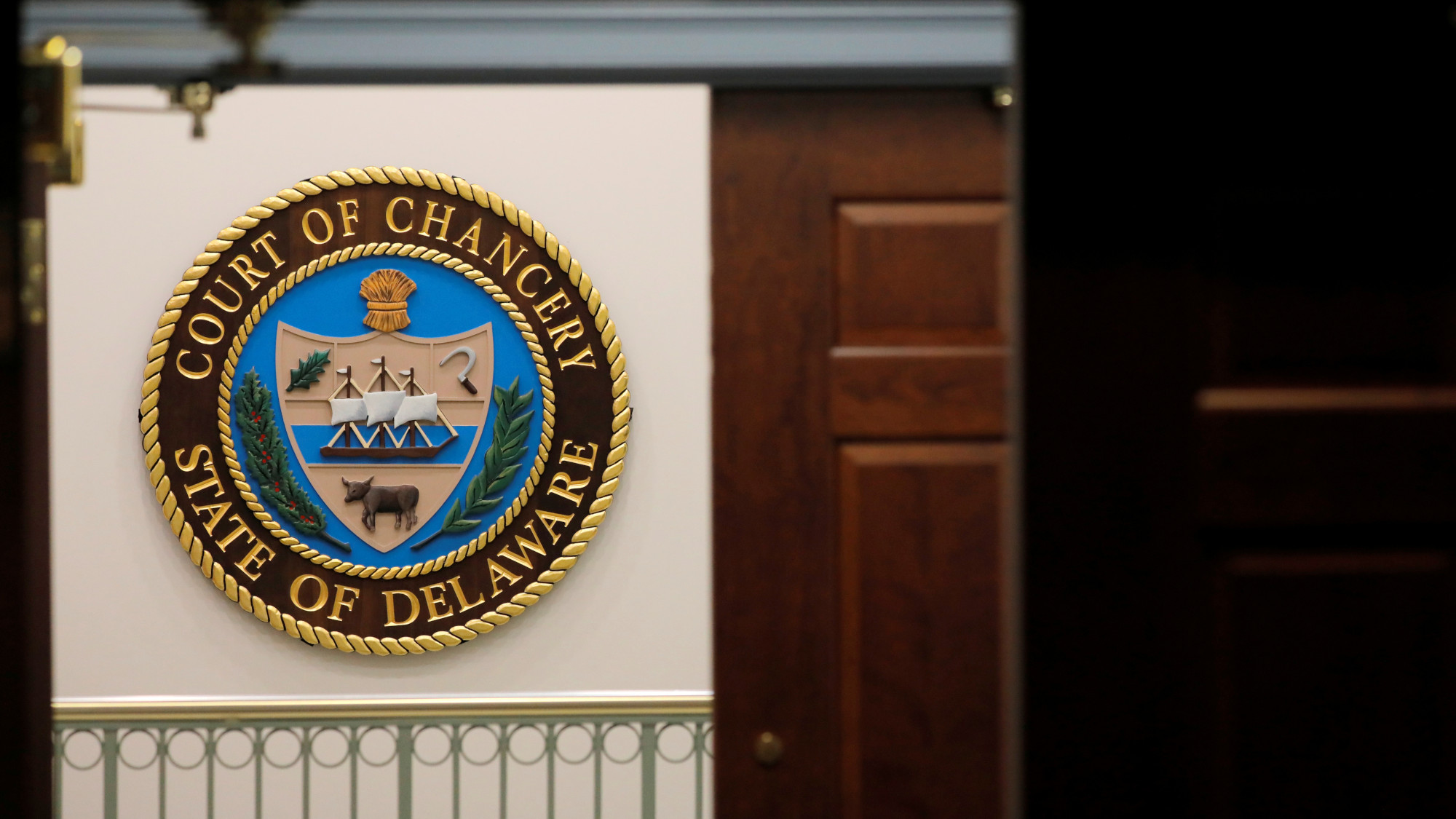 Texas vs. Delaware: See you in court
Texas vs. Delaware: See you in courtFeature Delaware risks losing its corporate dominance as companies like Tesla and Meta consider reincorporating in Texas
-
 What's Jeff Bezos' net worth?
What's Jeff Bezos' net worth?In Depth The Amazon tycoon and third richest person in the world made his fortune pioneering online retail
-
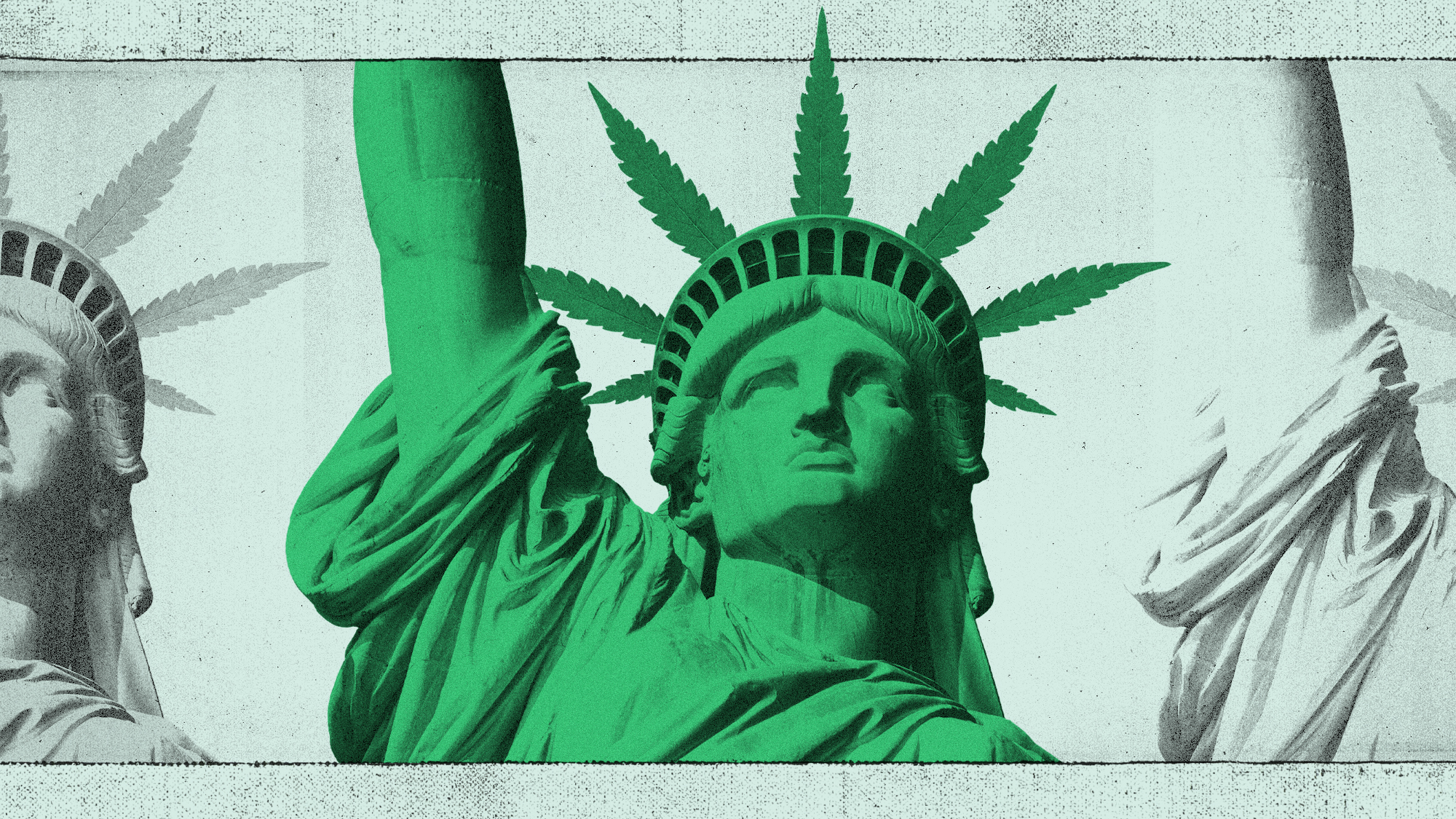 How New York's legal cannabis rollout ended up in the weeds
How New York's legal cannabis rollout ended up in the weedsin depth And many of the state's promises to social equity applicants went up in smoke
-
 California's homelessness crisis just can't catch a break
California's homelessness crisis just can't catch a breakIn depth Recent data dispels a widespread theory for who's to blame
-
 How synthetic diamonds are upending the industry's status quo
How synthetic diamonds are upending the industry's status quoIn Depth Lab-grown diamonds are causing changes in a business that is already under heavy scrutiny
